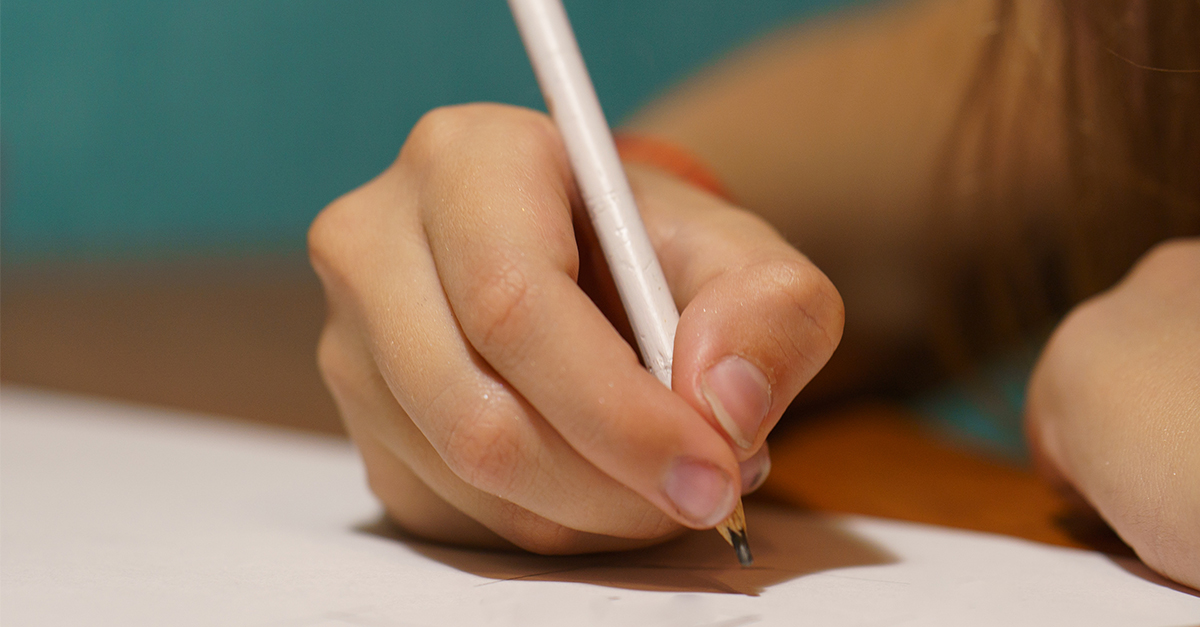
Not long after taking the family to see the movie, Finding Nemo, my husband thought I had forgotten something. My snappy reply of, “Who do you think I am, Darla?” was met with uproarious laughter by my spouse and children alike. In an ironic twist, I had managed to forget the name of the lovable fish with short-term memory loss.
We all rely on memory daily, and, unfortunately, it fails us all from time to time. While there are many different types of memory, visual memory is of particular importance.
Various researchers have stated that as much as eighty percent of all learning takes place through the eye with visual memory existing as a crucial aspect of learning. (Source)
Accessing this visual recall is essential for successful spelling.
Good spellers typically visualize words when they spell, and the ability to spell irregular non-phonetic sight words involves the use of visual sequential memory. (Source)
That makes sense when you think about it. When uncertain of the correct spelling, most adults will try writing it different ways and determine which spelling looks correct.
We tend to rely on our visual memory as an “autocorrect” feature for spelling. Many spelling programs attempt to use visual memory by having students write words from a spelling list repeatedly throughout the week. Repetition definitely has its place in language learning; however, experience shows us that relying solely on rote memorization often fails to get the information into long-term memory in an easily retrievable manner.
Short-term memories can become long-term memory through . . . rehearsal and meaningful association.” (Source)
Rote memorization of spelling words supplies the “rehearsal” part of the equation but lacks the element of “meaningful association.”
Why is meaning so important in this process? Have you ever smelled something cooking and were immediately transported back in time to the kitchen of your childhood? You can recall the faces, the décor, and everything else with vivid detail. That smell served as an index entry to all the other elements. Over time, recalling these memories repeatedly has caused them to become permanently associated with each other. (Source) As Stephen Tobolowsky once said, “Memory works according to meaning, and when something is important to you, the Google in your brain brings it forward all of a sudden.”
Another element of long-term memory is procedural memory. This is the ability to do things unconsciously, like riding a bike, for example. This comes through repetition and practice. (Source) We often refer to this as kinesthetic or muscle memory. The role of kinesthetic memory in spelling was discussed in Are Spelling and Reading Manipulatives Effective? Writing by hand involves multiple areas of the brain, as the student must think about the sound being made, decide which letter needs to be written, think about how the letter is formed, and finally engage the proper hand motions.
Spelling You See incorporates all of these important aspects of memory in the program. Completing core activities using the same passage throughout the week supplies the repetition necessary to transfer information from short-term to long-term visual memory and develop the necessary muscle memory for correct spelling. High-interest passages and accompanying illustrations provide the meaning to help with both transfer to long-term memory and the subsequent retrieval of correct spelling through association.
We invite you to explore the Spelling You See program to see how it can contribute to your child’s success.




Leave a Reply